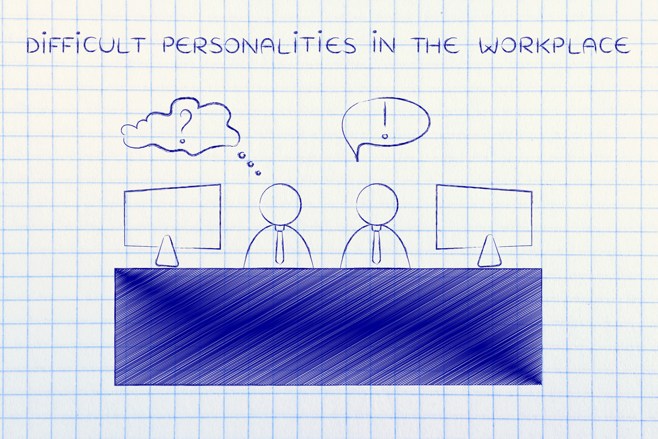BLOG
How to deal with difficult co-workers
Dec 12 2017
Darren Best

Don’t take it personally
People tend to misinterpret the reason for others behaviour and it can lead to them feeling anxious and doubtful of themselves. This is a big mistake, as most of the time the person in question has other reasons for acting that way (not that it’s acceptable regardless). These behaviours are toxic and can take a toll on your mental health in the long run. The best solution is to stop justifying their behaviour and hold them responsible for their own actions. You are not responsible for deciphering their thoughts and behaviour, and chances are they are doubting themselves and feel anxious as well.Focus on what’s best for yourself
Some people tend to be very self-centered and like to have the spotlight constantly on themselves. It’s really easy to focus on them, instead of yourself and this can be very tiring, and it can make you doubt your own capabilities. When this situation occurs, it’s best to look away from them and focus on yourself and on making sure you are doing your job as best as you can. Photo credit: ASDF_Media/Shutterstock
Photo credit: ASDF_Media/Shutterstock
Set some boundaries
You need to communicate to others what is acceptable behaviour and what isn’t. For example, if a person hinders the performance of the team, or their work is full of errors which will cost other co-workers the time to correct them, then the issue will eventually need to be addressed to this individual. However, the way you address it can either have a good outcome or a very negative one. Most people don’t take criticism well and when confronted with it, the result will only exacerbate the tension. When dealing with a difficult person, try reaffirming their qualities first and then tackle the areas where they can improve. This will show them your appreciation for their hard work and the fact that your intention is to help them improve instead of making them feel like you are picking on them.How to deal with a situation at work
Firstly, it is important do define whether your co-worker is belittling or intimidating you. If you feel like this person is intimidating you regularly, if he/she is yelling, insulting or putting you down and you dread working with this individual, then you need to do something about it. Simultaneously, if that person criticises you, constantly speaks over you, or taking the credit for your work, then you are being 'bullied'. Photo credit: Alex Brylov/Shutterstock
Studies have shown that most employers prefer to not get involved in issues between employees. If this is the case for you, then you will need to take matters in your own hands, by practicing personal courage. Although these people are usually very intimidating, it is important to stand up for yourself and not let them walk all over you. You need to communicate like adults, and tell he/she the issue you have with their behaviour and how this affects your work. If they are not open to hear your opinion then take action next time.
It is important to document what is happening at work. This might come in very handy in the future if you are not able to resolve the issue by yourself and you need to bring the matter to HR or management. Maintain copies of all emails, letters or text from that person that you can show if needed, and note if another employee notices any incident as they could testify for you.
Feature image credit: faithie/Shutterstock
Photo credit: Alex Brylov/Shutterstock
Studies have shown that most employers prefer to not get involved in issues between employees. If this is the case for you, then you will need to take matters in your own hands, by practicing personal courage. Although these people are usually very intimidating, it is important to stand up for yourself and not let them walk all over you. You need to communicate like adults, and tell he/she the issue you have with their behaviour and how this affects your work. If they are not open to hear your opinion then take action next time.
It is important to document what is happening at work. This might come in very handy in the future if you are not able to resolve the issue by yourself and you need to bring the matter to HR or management. Maintain copies of all emails, letters or text from that person that you can show if needed, and note if another employee notices any incident as they could testify for you.
Feature image credit: faithie/Shutterstock